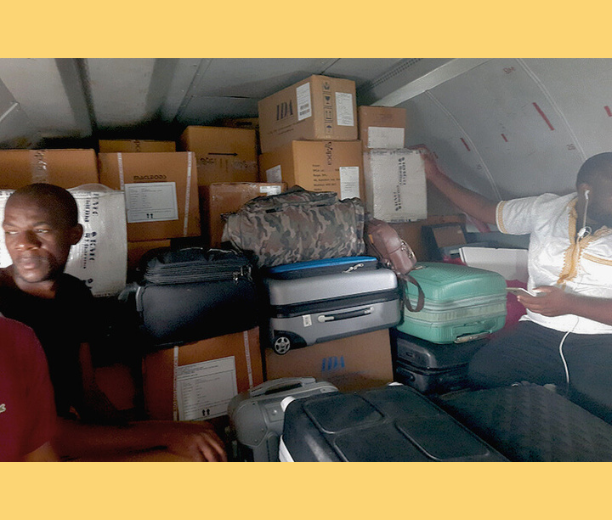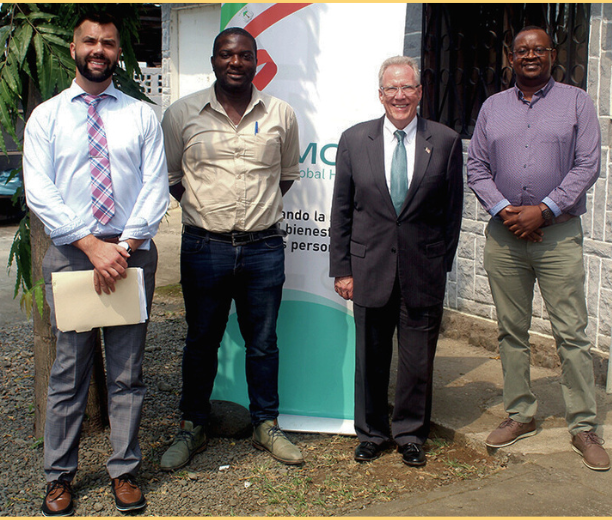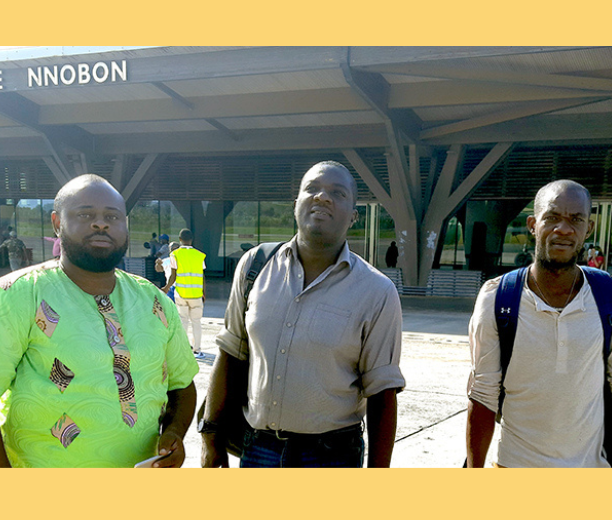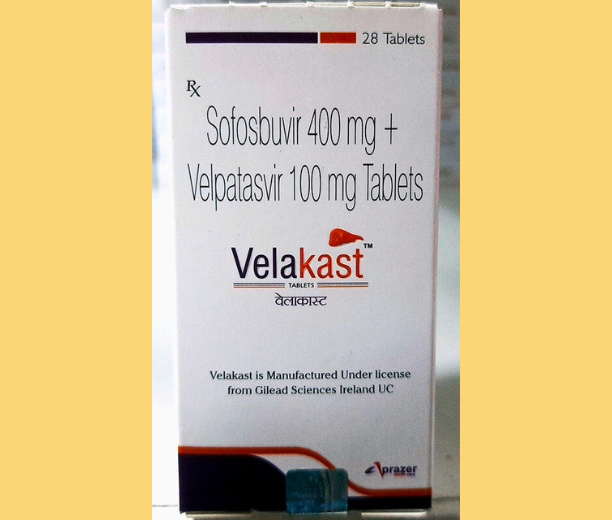Strengthening Equatorial Guinea’s Health System through Supply Chain Management
July 1, 2024
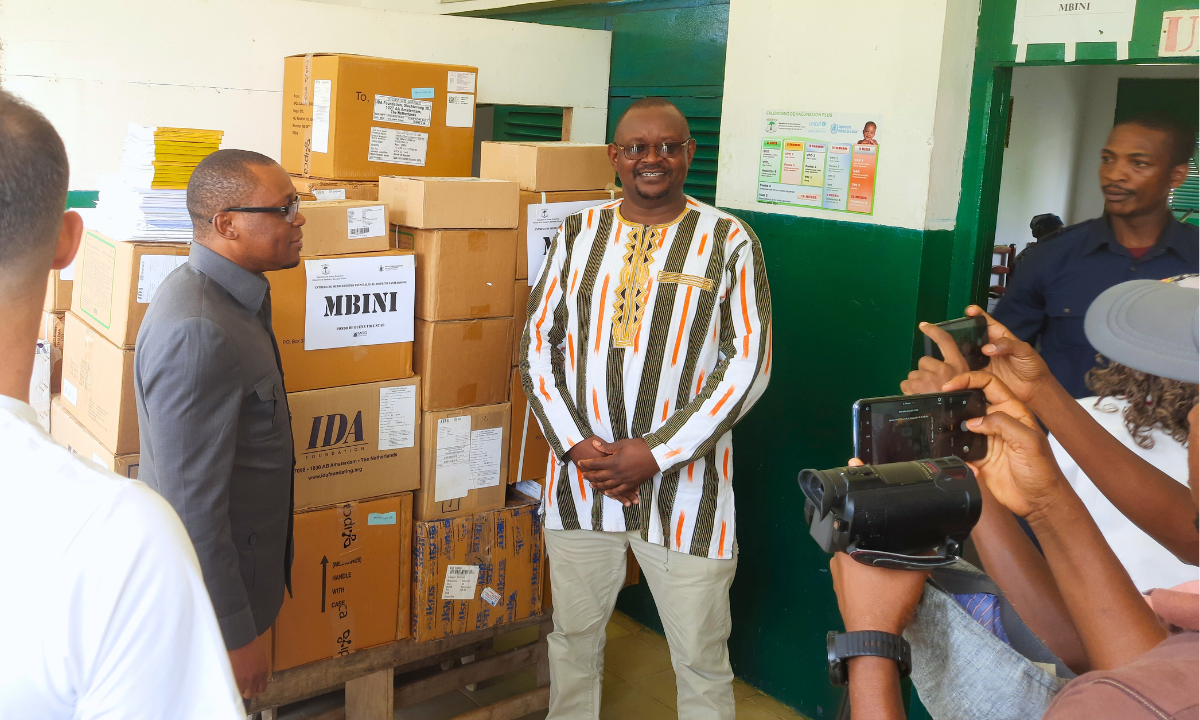
Equatorial Guinea’s Minister of Health and Social Welfare, Mitoha Ondo’o Ayecaba, symbolically receiving GWF-procured essential medicines from Wonder Philip Phiri, MCD’s country director of Equatorial Guinea, at the Mbini health district.
Effective supply chain management is crucial in global health and ensures that lifesaving health supplies are available and reach those in need.
For MCD Global Health’s Good Will Fund (GWF) project in Equatorial Guinea, which started in 2021, this means ensuring the availability of essential medicines, reproductive health supplies, and tools to diagnose and treat HIV, tuberculosis (TB), and malaria.
Funded by the Government of Equatorial Guinea and the U.S. Department of Justice, this nationwide program covers all 19 health districts in the country.
Before the project, continuous medical supply shortages meant many people in Equatorial Guinea would visit health facilities only to find necessary medicines or diagnostic tools unavailable.
"Ever since the project started, there has not been any situation of chronic stock-out of drugs, so this is a problem that has been addressed,” said Antonio “Tony” Roca, field coordinator of the GWF.
With MCD’s expertise and long-term presence in the country, the GWF has made some notable achievements, including:
- Introducing Epclusa (sofosbuvir/velpatasvir) combination as first-line treatment for hepatitis C.
- Procuring nine of 14 GeneXpert machines operating in the country, capable of diagnosing HIV, TB, viral hepatitis B and C, COVID-19, and other infectious diseases.
- Procuring and distributing more than 100 tons of essential medicines and medical supplies over two-and-a-half years.
- Introducing stock control and management tools across all 19 health districts for greater accountability in essential medicines.
- Averting essential medicines stock-outs, including drugs to treat malaria and TB, for the second consecutive year.
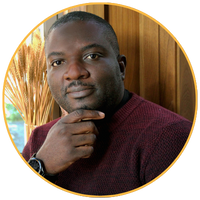
Successfully implementing the project involves closely working with Equatorial Guinea’s Ministry of Health and Social Welfare (MOHSW) on three vital actions. First, the teams procure safe and essential medicines that are quality assured.
“We know it’s not just a matter of getting medicines to the population, it’s about getting safe medicines to the population,” Tony explained (image at right).
Secondly, the teams must have an organized storage and distribution system in place for accountability and traceability, an area of expertise for MCD after 20 years of experience managing health projects in Equatorial Guinea with the MOHSW.
Lastly, capacity building and training are vital for those who manage the supply chain to create sustainability for supervisors and in local health facilities.
In addition to supplying essential medicines, the GWF project also focuses on procuring medical supplies and diagnostic tools, such as rapid diagnostic tests for malaria and pregnancy and GeneXpert machines.
"If you want to give people quality treatment, you first need a quality diagnosis,” Tony said. “You want to be sure that you’re treating them for what they actually have.”
When the project began, the GWF team distributed medicines and supplies to every public facility nationwide. Then, a series of stock management tools were introduced to track the movement of medicines from supply to patient delivery.
“We've set up the system. It's in place. Every facility that we’ve delivered supplies to has the stock management tools and knows how to use them,” Tony said. “We've trained them, continue to carry out periodic supervisions, and report the findings to the MOHSW. If this system continues to be upheld when the project is completed, then we would have solved some issues in the health system.”
The GWF project is expected to be completed in 2025, and the legacy of the developed system will continue to operate to avoid any future stock outs of essential supplies.
“It’s been a pleasure being part of this journey, and I’ve learned a lot as a professional,” Tony said. “It's been a moment of professional growth for me, and I want to believe for my colleagues who've been part of this journey, too.”
